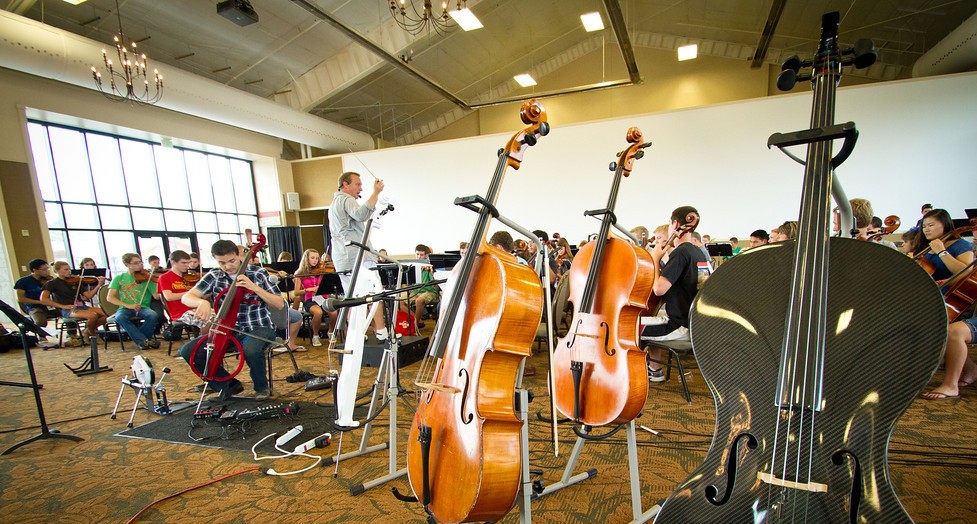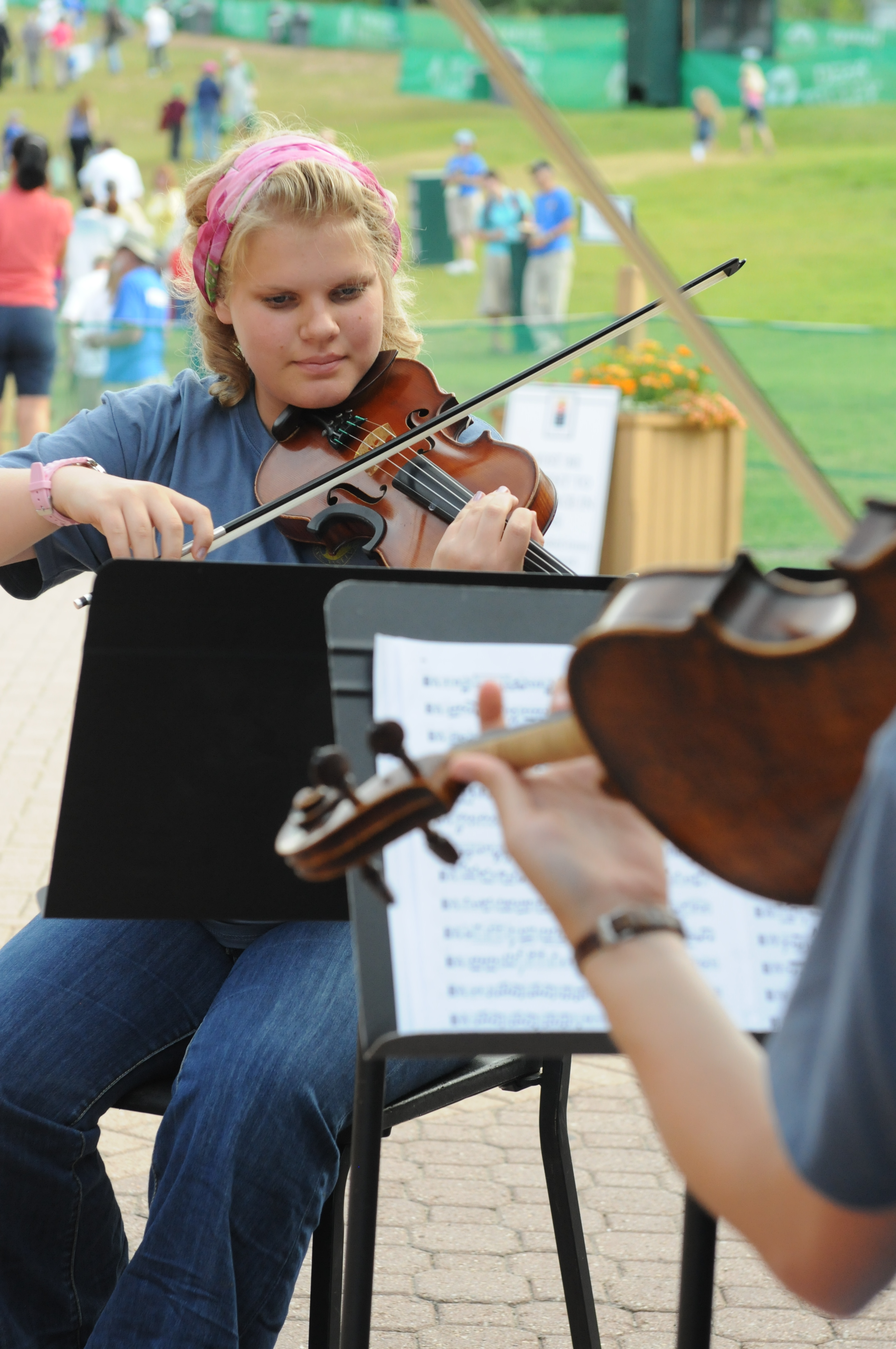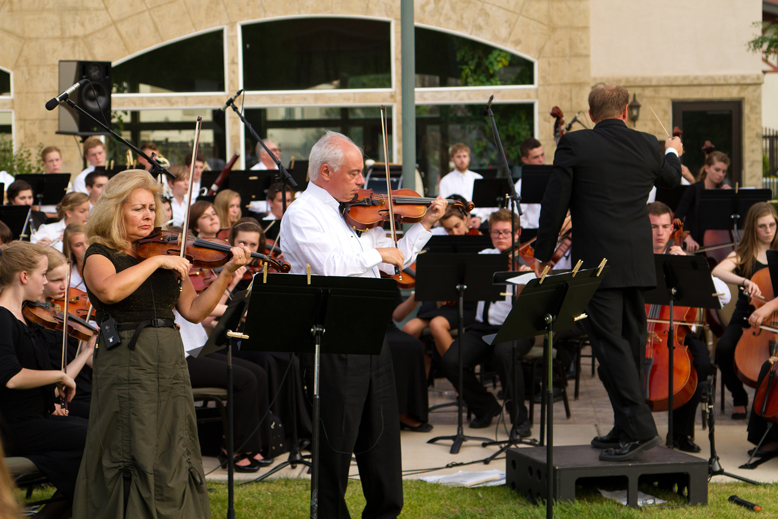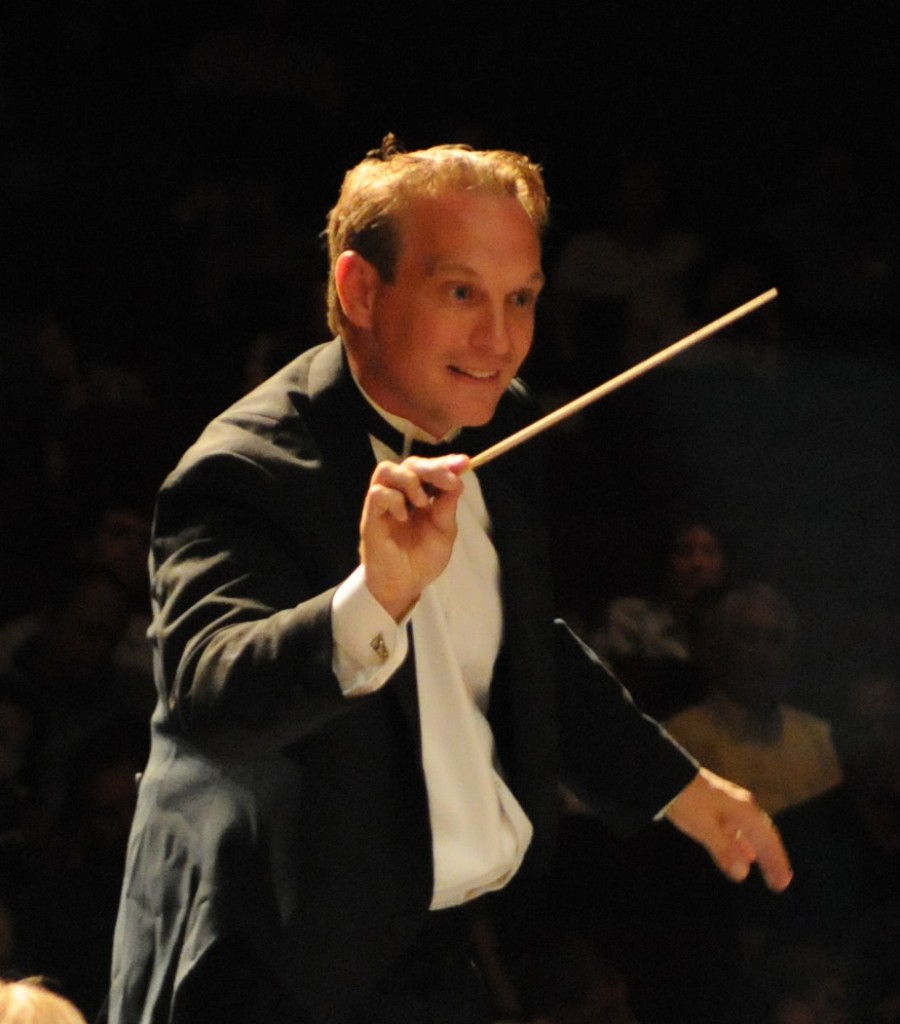Why Music Camps?

Parents may be asking the question – why music camps? We practice every day, take private lessons, play in school ensembles, after-school groups, group class, marching band, competitions and the list can just go on and on. How can one or two short weeks during the summer make much of a difference?
As the director of a major music camp, I could tell a lot of stories about how music camps have been a watershed experience for so many, but let me start with a bit of my own story. I grew up in a college town of about 40,000. I had a great private teacher, a strong school program, and fun musical friends. Most of my musical progress was made at home as a result of the endless patience of Dr. James McWhorter but like most teenagers, I had a lot of interests and didn’t particularly see a future in a music career.
Music camps create an environment where students can FOCUS.
Music camps are unlike any other learning experience because of the way they help the student focus. From the time you wake up in the morning until the time you go to bed there is this all-you-can-eat musical menu that you won’t find anywhere else: new music, new friends, new mentors, new challenges, and no distractions. There is no homework, part-time job, or media to distract and delay you from your instrument. At Lyceum Music Festival, for example we prepare a professional level concert with students in a single week. Take a look at the schedule and you will see how focused the students need to be to do what their mentors from the Utah Symphony do week in and week out.
We’ve all heard of being a “Big Fish in a Little Pond”. Music camps put you in a community of musicians that includes players your same age that are in a league you may have never seen before. Especially for participants who come from areas outside the major metropolitan areas, Lyceum Music Festival or any high-level music camp, is often a young musician’s first exposure to same-aged peers who play at a very high level. It’s easy to think you are a big fish in your little college town of 40,000 but when students come from across the country to a music camp (LMF has students attend from 17+ states, Canada, and Europe) there are always some who are extraordinary. Students who remind us all that we sometimes fail to work as hard as we could.
I’ll never forget the first time I sat next to Matthew Johnson. He was one year older than me and many years more advanced. I always thought I was pretty good on my instrument, then I played next to him and realized that I had been slacking! That sort of paradigm shift motivates practice long after the week is over. Not only being exposed to the top players, but getting to know them. Coming to know that they aren’t freaks of nature who practice 8 hours a day and don’t have any sort of balance or fun. Watching what they do. Finding out where they are from. Young musicians are surprisingly supportive of each other. Making a friend that plays incredibly well and who you won’t see at the local competitions can really be a big support. By the way, Matthew Johnson is now the Associate Principal Cellist of the Utah Symphony. We ended up studying with the same teacher and he has come to LMF as faculty. He is still inspiring me all these years later. If it wasn’t for a music camp, we maybe never would have met.

Aspiring Musicians Work with Performers and Teachers

Students work with teachers. This is a fact of all learning not only music. At a certain point however, medical students become residents. College students become interns, student teachers, and apprentices. Most students have lots of exposure to teachers but less exposure to performers. Music camps, especially Lyceum Music Festival, gives students the chance to work with performers big-time performers like Simply Three, The Piano Guys, and The 5 Browns are great teachers but they make their living as performers. To pin them down for a week to work with youth is a special experience both for the performer and the student. It doesn’t take the place of a weekly private lesson, but hopefully helps give context to the work that happens week after week at home. I shows students the destination of all that hard work.

To return to my story, it wasn’t until I was allowed to really get to know the players in the Utah Symphony that I saw a career path for me in music. Being exposed to professional symphony players, recording artists, conductors, making YouTube music videos, and getting a feel for what the larger community has to offer can make a huge difference.
The focus you get by playing your instrument for 20+ hours in a week. Getting a sense of what musicians your same age are doing in a bigger pond than you are used to and performing on stage with Simply Three or any of our faculty and guest artists can make a difference long after the week is over. Music camps are an opportunity for a paradigm shift that can motivate practice long all year long. That’s why music camps!
